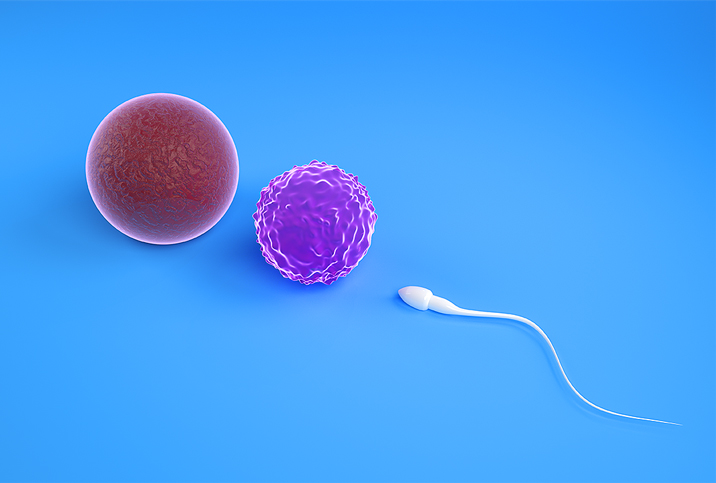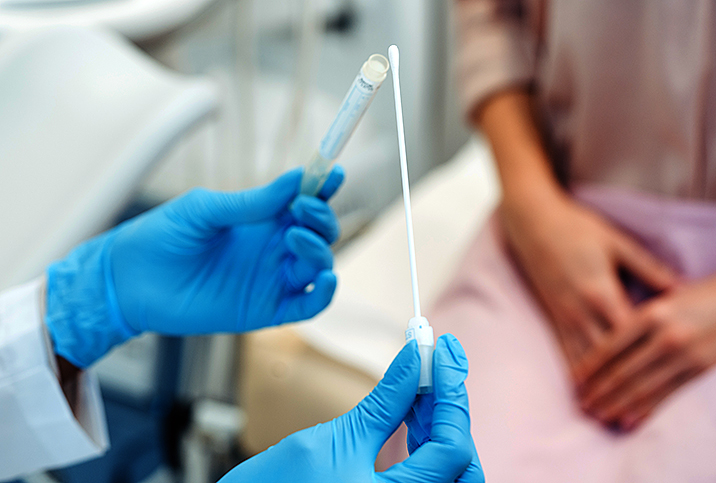These 5 Infections Can Contribute to Infertility

The body responds to infection in different ways: inflammation, fever, fluid retention and more. One way that might be surprising, but is becoming better understood, is fertility.
In men, an infection—whether caused by a sexually transmitted infection (STI) or not—can target reproductive organs and cause short- and long-term issues in the testicles and penis.
"Any condition that has a high fever can cause a temporary decrease in sperm count," said Lawrence Jenkins, M.D., a physician at Arizona Urology Specialists.
The rise in body temperature is counterproductive for sperm production, leading to potentially lower numbers, he added. The good news is once the infection is treated, normal sperm production should resume in the next sperm creation cycle.
Given the many potential fertility issues men may face, we wanted to take a closer look at five infections, their symptoms and their links to infertility.
Chlamydia
Chlamydia is a common STI and may present itself as an active infection with symptoms such as a burning sensation during urination, light-colored penile discharge and tender/swollen testicles. However, up to half of all infections may never show symptomatically.
An uncontrolled chlamydia infection can lead to poor sperm quality and scarring—long-term and potentially permanent—of the tubes that carry sperm from the testicles, along with the testicles themselves and the prostate gland.
Gonorrhea
The dark-colored discharge and burning urination associated with gonorrhea could also signal problems with fertility. This bacterial infection can present with chlamydia-like scarring and problems with sperm motility and overall sperm health. One study suggests that for people with concurrent chlamydia and gonorrhea, sperm may be completely absent in ejaculate. Like chlamydia, gonorrhea is largely treatable with a normal course of antibiotics.
Post-puberty mumps
While we largely think of mumps as a childhood disease, the adult variation of the virus can cause real problems for fertility.
"Mumps can lead to shrinking of the testicles, which can decrease fertility over time," said Darshan Patel, M.D., assistant professor of urology at University of California San Diego Health.
He further noted that while symptoms, along with the reduced fertility, can resolve themselves, 15 percent of men who contract mumps may experience decreased sperm concentration, and 1 percent to 3 percent may see a significant reduction or a permanent inability to produce new sperm.
Treatment to reduce mumps symptoms is similar to that for the common cold: bed rest, plenty of fluids and over-the-counter pain relievers.
HIV
Many men who are HIV-positive may experience testicular atrophy, which leads to lower testosterone levels and potentially less sperm production, according to Patel. This is just one of many fertility-related issues faced by couples with at least one positive partner—hypogonadism (low testosterone), a higher risk of infection in the HIV-positive partner and social pressures are others. Typically, a lab will analyze a semen specimen to understand fertility levels and potentially explore alternative reproductive options.
Zika virus
Although the Zika virus is commonly known for issues associated with female fertility and pregnancy, emerging science suggests there may be effects for men, as well. The mosquito-borne illness may harm specific testicular cells that promote immunity and other important functions, although there isn't a clear understanding of whether the virus directly affects male fertility. In any case, Patel noted that men traveling to areas where Zika is prevalent should be extremely cautious.


















